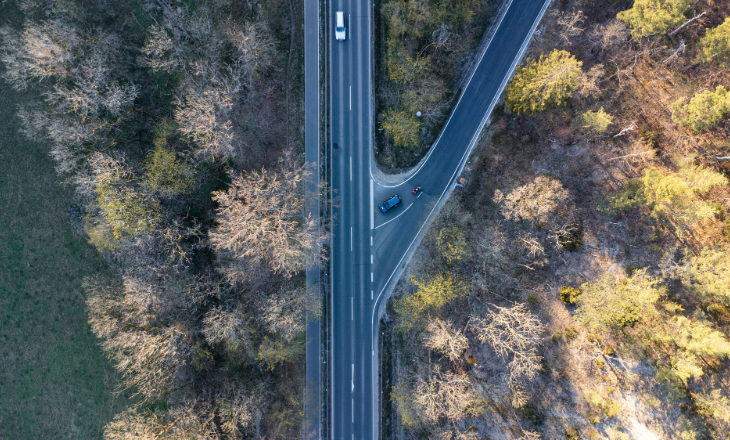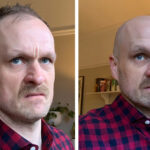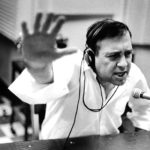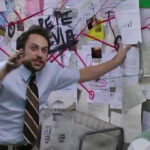Unfortunately for my friends – not to mention co-workers, acquaintances, and particularly unlucky members of the service industry – I’m the kind of person that if you ask me how I am, I’ll tell you. I won’t spare details for politeness’s sake. If I feel like shit, I’ll tell you. If I’m having a hard time, I’ll tell you.
And I’m not doing that great. I haven’t been for a while.
I never thought that I would be forty-seven. Not in that live fast, die young kind of way, I just never thought to picture it. As a kid, I pictured my twenties and thought of that as real adulthood. I then pictured thirty and its subsequent decade with dread. Beyond that was a haze. I had blurry premonitions of a spouse, kids, minivans, lawnmowers, mortgages, and all the other problems with which the two old people I lived with dealt while I sat on the sideline.
Despite not knowing what they would entail, I entered my forties anyway, single and child free, still doing the things that I had done since I moved to New York in my early twenties. I worked a web development job during the day and then pursued something creative at night: stand-up, improv, sketch, storytelling. Then I added distance running.
I would leave my apartment in the morning and go to work. Then I’d go to a storytelling open mike or an improv rehearsal or I’d drop my clothes off at the gym, go for a run, then shower and head to an improv show. Then I’d get home around 10:00 or 11:00. Repeat.
I was busy and it felt like a life.
Then, on March 11th, 2020, my forty-third birthday, the World Health Organization declared a pandemic. And my slate – and likely yours unless you’re Joe Rogan or live in Florida or some shit – got wiped clean.
At first it was pretty cool. I didn’t have a crowded apartment full of kids not sitting still during Zoom classes. I watched every show I loved on Netflix. I was still able to run in a mask. There was no commute. No office. No FOMO.
But it also meant no comedy, no improv, no storytelling, none of the things that had given my life meaning for most of my adulthood in New York.
At first there were Zoom shows. But those petered out. My groups folded. My well of stories dried up. After my second marathon, I started getting sick of it. I was bored with my running routes and my middle-aged feet started hurting more.
Over four years later, we’ve come out the other side and my passion the things I used to care so much about hasn’t returned. I still like them, but they don’t seem like a reason to get up in the morning any more.
I hadn’t realized how much wanting something, no matter what it is, gives you a reason to live. I knew I wasn’t going to write a best seller or get on SNL or smoke some Kenyan in a marathon. But wanting to improve at something was important.
Now the only way I can think to describe my current station is that I’m constantly asking myself, “what should I do until I die?”
I realize this could be considered an insulting question coming from a relatively healthy forty-seven-year-old. Sure, I take blood pressure meds and I squint to read and I have what a podiatrist called “eh, maybe a little arthritis” in my feet. But I recognize there are people who actually have to think about their more immediate mortality. There are people with chronic diseases or physical challenges that I don’t have. So I am lucky but I still have to ask the question.
This really doesn’t feel like a mid-life crisis. It’s been too much of a slow burn for that. Plus, there have been no sports cars, no younger women, no hair plugs. Mostly just repeating myself in therapy.
I did it a little differently than my friends. I didn’t get married and I didn’t have kids and I won’t be doing either. (Quick shout to the “but you’re a man!” crowd. Let’s please make a distinction between “biologically possible” and “good idea.” If you know me and know how I’ve lived thus far and you’re thinking, “the only thing missing from Rob’s life is a child,” you haven’t been paying attention.)
So, I need to figure something out because when single white men get older, they start getting, if not outright dangerous, pretty damn weird. We start painting model soldiers or birding or getting way into adolescent obsessions: baseball statistics or comic books or guitars. Thus far my only obsession appears to be Premier League Soccer which I can handle but who knows? I spend hours listening to soccer podcasts and might be giving myself an ulcer by restraining myself from arguing with someone on Twitter who is probably a bot saying that Dejan Kulusevski wouldn’t start in any other big six side or Ange Postecoglou’s inverted wing backs have already been figured out by everyone in the Prem or Rodrigo Bentancur was overreacting when he tore his ACL.
Did you follow any of that?
If not, good.
And I’m really getting sick of toxic positivity. The internet is littered with success stories from older people. Let me normalize finding love in your 50’s! Let’s normalize discovering your passion at 60! Let’s normalize getting a PhD in your 70’s!
First of all, let’s normalize not having to normalize everything that isn’t already normalized. It’s probably healthy to be hopeful for great things to happen at any age but we also need to figure out how to live life when those things don’t happen, when this is it and this has to be enough.
Oh yeah, did I mention that I got laid off in July?
Friends have suggested travel, meditation, maybe even reducing everything in my life and starting anew somewhere else.
Nothing that I’ve heard or thought of myself seems right.
Tomorrow I’m going to wake up, walk my dog, French press some coffee, and watch some soccer games.
And after that… I’m not sure. I really don’t know.





Ah sorry. That sounds awful. I think self-improvement only goes so far – it seems to be mainly a western invention, so it’s for young able-bodied folks and it’s overindexed on the personal responsibility piece. Most other humans have had some sort of intact culture where everyone’s purpose is about serving other people. That works pretty well, long-term, for most humans – we’re communal animals. So people here might have families, or jobs or a political cause or a community garden – they might *look* like accomplishments or hobbies, but they’re really just the things that keep them working on something that’s bigger than themselves. When people die we write bios of them listing their individual accomplishments like that’s what mattered about them – who cares! I want to be able to get up in the morning and know that I have something meaningful to do alongside other people. You know? I’m just a regular human.
I love you, Rob Penty. Not sure what to say other than that and xoxoxoxxoxoxoxoxoxoxoxoxox.
Hey Rob, not for nothing, I think the work you’re doing with this blog is great.
The fact that you’re writing this gives me the impression that you’re closer to figuring it out than you realize. It sounds to me like you’re already leading a pretty wonderful life and that the only thing missing is the realization of that. I went thru a similar (possibly more difficult) experience just before Covid. It took the realization that my son was growing up and my dogs were getting old and would soon be memories to realize that I was living thru a golden age of my life without being aware. Something clicked in my brain at that point, and now, even when things are really bad and I’m too depressed to stand up, I always keep that baseline gratitude just to be here and have all the things I have. Not material things. Real things, like my new puppies.
And another good thing to remember is that time isn’t for anything but to waste. There’s no better way to spend it than to enjoy whatever it is you’re doing at the moment. Even if that’s just lying on the couch listening to a podcast. There’s no point in the future when someone is going to add up all the stuff you’ve done and mark your life as officially well spent. All that matters is if it was appreciated as you went. And even that doesn’t matter that much.
This sounds trite, but it doesn’t feel trite when you do it.
Thanks, Dennis, I’m definitely coming around to this view.